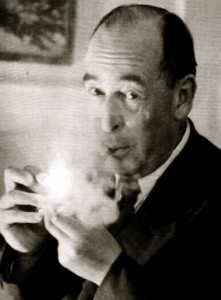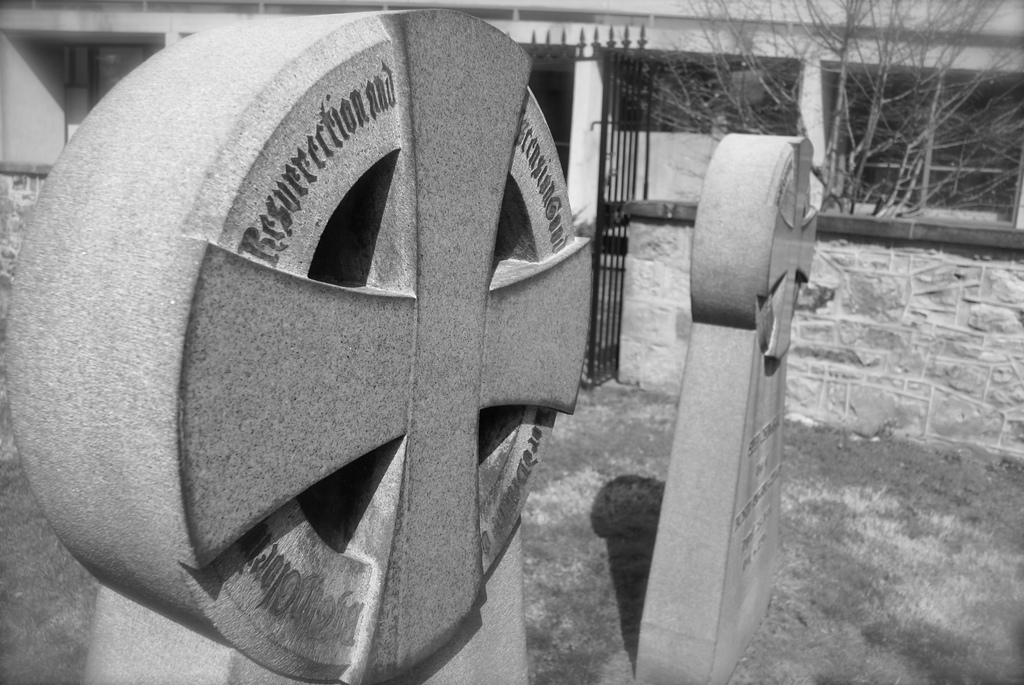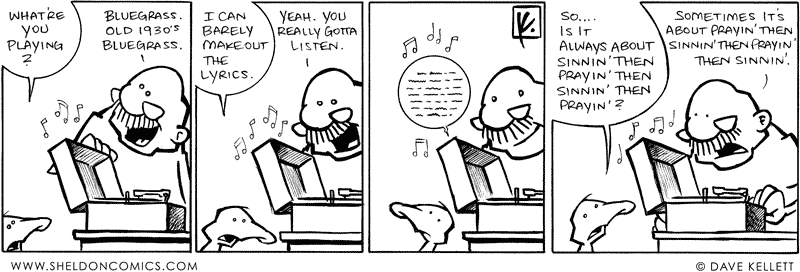 Was I trolling for hits with that title? Perhaps. Since I have not had time to read (let alone post) any comics you can imagine that I have not really been able to keep up with all the news regarding Rob Bell’s new book and the hoopla regarding universalism. I was however sent to this blog post by a grad student, Rob Bell is NOT a Universalist (and I actually read “Love Wins”). This in turn referred to C. S. Lewis’ The Great Divorce
Was I trolling for hits with that title? Perhaps. Since I have not had time to read (let alone post) any comics you can imagine that I have not really been able to keep up with all the news regarding Rob Bell’s new book and the hoopla regarding universalism. I was however sent to this blog post by a grad student, Rob Bell is NOT a Universalist (and I actually read “Love Wins”). This in turn referred to C. S. Lewis’ The Great Divorce.
I read this book back in college and it has stayed with me remarkably well over the years. The concepts, or the vague shadows of the concepts, at least. The physical book has long since gone missing. I was pleased then to find that is available in electronic form for my reading pleasure on my iPad. Just dipping into the Preface, just the preface mind you!, I found it greatly amusing how direct and accurate Lewis often was in his assessment of such issues.
Blake wrote the Marriage of Heaven and Hell…. In some sense or other the attempt to make that marriage is perennial. The attempt is based on the belief that reality never presents us with an absolutely unavoidable ‘either-or’; that, granted skill and patience and (above all) time enough, some way of embracing both alternatives can always be found; that mere development or adjustment or refinement will somehow turn evil into good without our being called on for a final and total rejection of anything we should like to retain. This belief I take to be a disastrous error.
I have not read Bell’s book (although I have downloaded the sample on iBooks so I will be sure to leap to conclusions based upon that free snippet) and I am very sympathetic with the question-asking that is often not allowed (tacitly at least) in Christian communities regarding the afterlife (see my post on “Immediate Resurrection” that received another comment just today). The difficulty is, of course, that our conclusions will always be biased by our assumptions. Given the Gospel’s own testimony of Jesus’ statements about hell I am inclined to begin with the assumption that, like a good Pharisee, there is a resurrection of the dead, a Day of Judgment, and appropriate consequences. (I am sympathetic to the annihilationist view, but we can save that for another day.) Lewis’ further observations are much my own or, rather, mine are his, I suppose.
We are not living in a world where all roads are radii of a circle and where all, if followed long enough, will therefore draw gradually nearer and finally meet at the centre: rather in a world where every road, after a few miles, forks into two, and each of those into two again, and at each fork you must make a decision. Even on the biological level life is not like a river but like a tree. It does not move towards unity but away from it and the creatures grow further apart as they increase in perfection. Good, as it ripens, becomes continually more different not only from evil but from other good. I do not think that all who choose wrong roads perish; but their rescue consists in being put back on the right road. A sum can be put right: but only by going back till you find the error and working it afresh from that point, never by simply going on. Evil can be undone, but it cannot ‘develop’ into good. Time does not heal it.




10 thoughts on “Rob Bell & the Great Divorce”
I started to comment on your post about Immediate resurrection, but feared I would have so much to say that I would be hi-jacking your blog!
Concisely put, we believe:
1. When we die, our spirits leave our bodies and go to the “Spirit world”
2. Those who have chosen good in this world live in “Paradise” (Luke 23:43 And Jesus said unto him, Verily I say unto thee, To day shalt thou be with me in paradise.)
3. Those who have chosen evil are put in Spirit prison. (1 Peter 3:19 By which also he went and preached unto the spirits in prison;)
4. We all will be resurrected.
5. We all will be judged by our works.
6. If we have relied upon the atonement of Jesus Christ, and repented, we will not be judged by those sins.
In addition, we believe that there is work beyond the grave, including missionary work among those in spirit prison. I think that alone keeps the dead very busy!
Ahh…I could write more, but I don’t want to write a book here!
I wonder how long has it been since I’ve read “The Great Divorce”…. I reread “The Screwtape Letters” once a year or so, but not TGD.
Anyway, I find Lewis’ introduction is the weakest part of what is otherwise a magnificent book. It’s preachy, sounds like fighting a bunch of strawmen and the whole biological metaphor is hopelessly out of place. Lewis as a preacher is cold and legalistic and on the whole, very protestant. Lewis as a story teller is a whole another, um, story.
My favorite passage – and a short and succint summary of the whole TGD is this:
From what I have heard of Bell’s arguments (though I haven’t had the opportunity to read his book yet either), this is pretty much what he’s saying.
BTW, I trust you have seen Slacktivist’s contribution to the debate.
I (like Paul below) find Lewis’ analogies to be somewhat tedious so I can appreciate why you bulbul say that you feel it is “preachy.” The thing is, however, unlike his fiction with the preface we know unequivocally where Lewis stands. Once could read the quote you have shared as moving towards a universalism yet when he speaks plainly he makes it clear that that this is not his position.
I love the quotation at the end of this post. I haven’t read TGD, but I’ve read Screw Tape, Mere C, and some of the Chronicles. Brace yourselves for this: I’m not real captivated by his writing style. He is a bit dry for me. I know. But I appreciate many of his thoughts. I would never say he’s not a good writer.
This analogy of the path of life being more like a tree than the notion that all roads lead to the center is one I haven’t heard (or read) yet. Very true to experience. One does have to identify the point of error and then start reworking the equation of ilfe. To keep walking without analysis leads to repitition of the same errors.
I haven’t read Bell’s piece, so I’ll refrain from specific comments there.
Thanks for this quote. It articulates something that has always resonated within.
Paul I will confess to a heresy: I have never finished Mere Christianity. I find it dry, as you have said, and his analogies very tedious. But that is not to say that his writing is not powerful and persuasive.
Well, I never! Unbelieveable. 🙂 I’ll join you: I just read Mere Christianity this year. I share your experience with his analogies, comrad. If it wasn’t for the apologetics course that forced me to, I don’t think I would have made it all the way through.
I commonly tell people the first half of Mere C. is worth reading…
Nearly finished with “Love Wins” I have read “The Great Divorce” and many other Lewis works – most of them – the themes are actually very similar. “The Last Battle” and the funny little story of the dwarves is also an interesting little comparison. The dwarves who think they are locked in the stable?